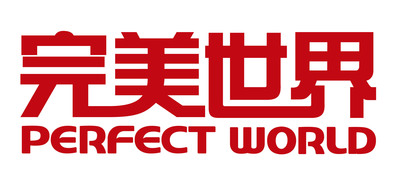BUYOUTS: Perfect World Re-Lists in China As Outlook Darkens
Bottom line: A new correction in China’s stock markets could derail many of the buyout offers for US-listed Chinese firms, leaving many orphaned in New York if Chinese financial markets enter a prolonged period of stagnation.

Online game operator Perfect World has become the latest Chinese firm to return home after leaving New York, with word that the company has made a backdoor listing through an affiliate in Shenzhen. But this latest re-listing comes at the same time that China’s stock markets look set for another big correction, a development that could pour cold water on the dozens of other US-listed Chinese firms waiting to privatize.
China’s stock markets tanked by a remarkable 12 percent in the first 4 trading days of 2016, including 2 days on which trading was halted by a circuit breaker that cut off all activity after the market fell by 7 percent. Some blamed the slide on the implementation of the circuit breaker program, which just began this year and was designed to prevent the kind of volatility that is now happening.
Responding to that criticism, the securities regulator hastily decided to suspend use of the circuit breaker in hopes of bringing some stability back to the market. But I’ve previously noted that even at its latest levels, including a modest rally in early Friday trade, the main Shanghai index is still well above its levels from late 2014 when a highly speculative rally began that lifted stocks to unjustified highs.
All that said, let’s look quickly at Perfect World’s latest deal, before moving on to discuss the latest Chinese stock market volatility and what it might mean for the big queue of companies waiting to de-list from New York. According to media reports, Perfect World has re-listed in Shenzhen by selling itself to a sister company called Perfect World Pictures (Shenzhen: 002624) for 12 billion yuan ($1.8 billion). (English article; Chinese article)
For any bean counters out there, the sale price represents a big premium to Perfect World’s market value of about $1 billion when it was de-listed from New York. But in this case it’s a bit hard to say if the 12 billion yuan figure really represents Perfect World’s true value, since the company is being purchased by an affiliate rather than an independent buyer that might not be willing to pay such a big premium.
Whatever the case, this particular instance of homeward migration was relatively fast, coming less than 6 months after Perfect World officially de-listed its shares from New York (previous post). Having an already-listed sister company in Shenzhen undoubtedly helped to expedite the process, and other companies without such a relationship are likely to require much longer periods to make such a move after de-listing from New York.
Plans on Ice?
But the recent volatility in China could cause many of those re-listing plans to freeze, including ones that have recently seen companies sign formal buyout deals. A good case in point is Qihoo 360 (NYSE: QIHU), which became the largest company to attempt a privatization by signing a deal that valued the company at $9.3 billion.
But Qihoo’s shares have tumbled in tandem with the China sell-off, and now trade nearly 8 percent below the buyout offer price. That indicates that shareholders are no longer convinced that Qihoo will be able to close the deal. Backers of the deal may also lose confidence if China’s stock markets continue to drop, since most were probably hoping to make some fast profits by quickly re-listing Qihoo back in China. Such a re-listing would be difficult and perhaps even impossible during a volatile market.
At the end of the day, a volatile stock market in China is likely to put many of these buyout deals on hold, much the way many deals fell into limbo during a similar correction last summer. Things will eventually settle down, of course, and when that happens we could see the de-listings pick up pace again. But buyout prices could be much lower, and much of the speculative money that was backing such deals could quickly disappear if China’s stock markets enter a long winter as the country’s economy slows sharply.
Related posts:
- BUYOUTS: iDreamSky Buyout Advances, Price Unchanged
- BUYOUTS: Shanda Games Stumbles, Hanergy Hints at Buyout
- BUYOUTS: Qihoo Advances, Jiayuan Hits Headwinds, Phoenix Next?
- Today’s top stories
(NOT FOR REPUBLICATION)
